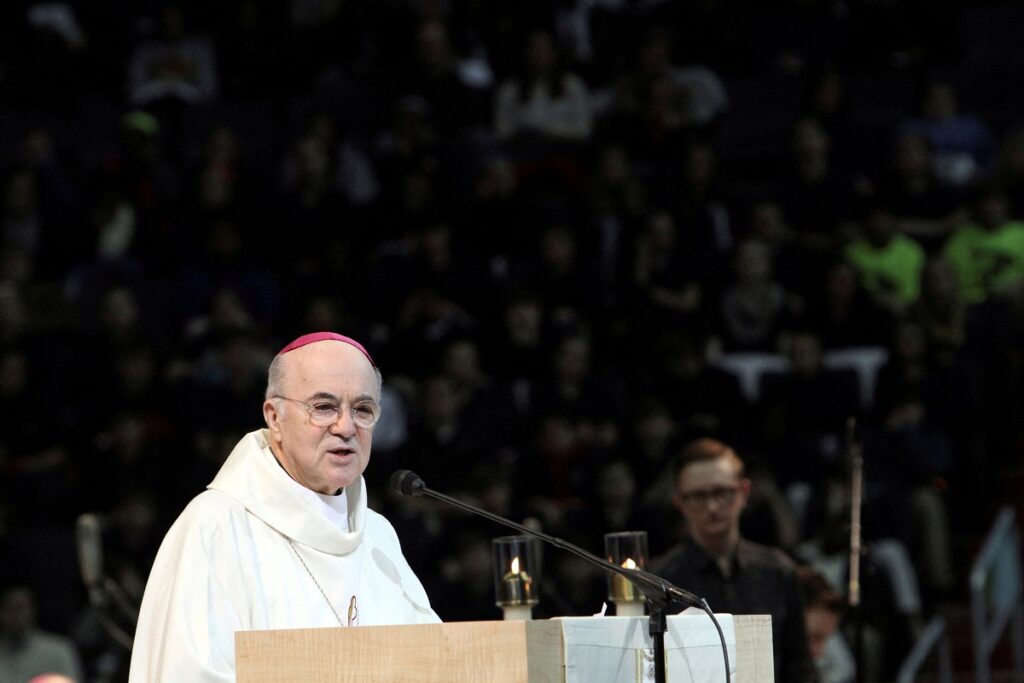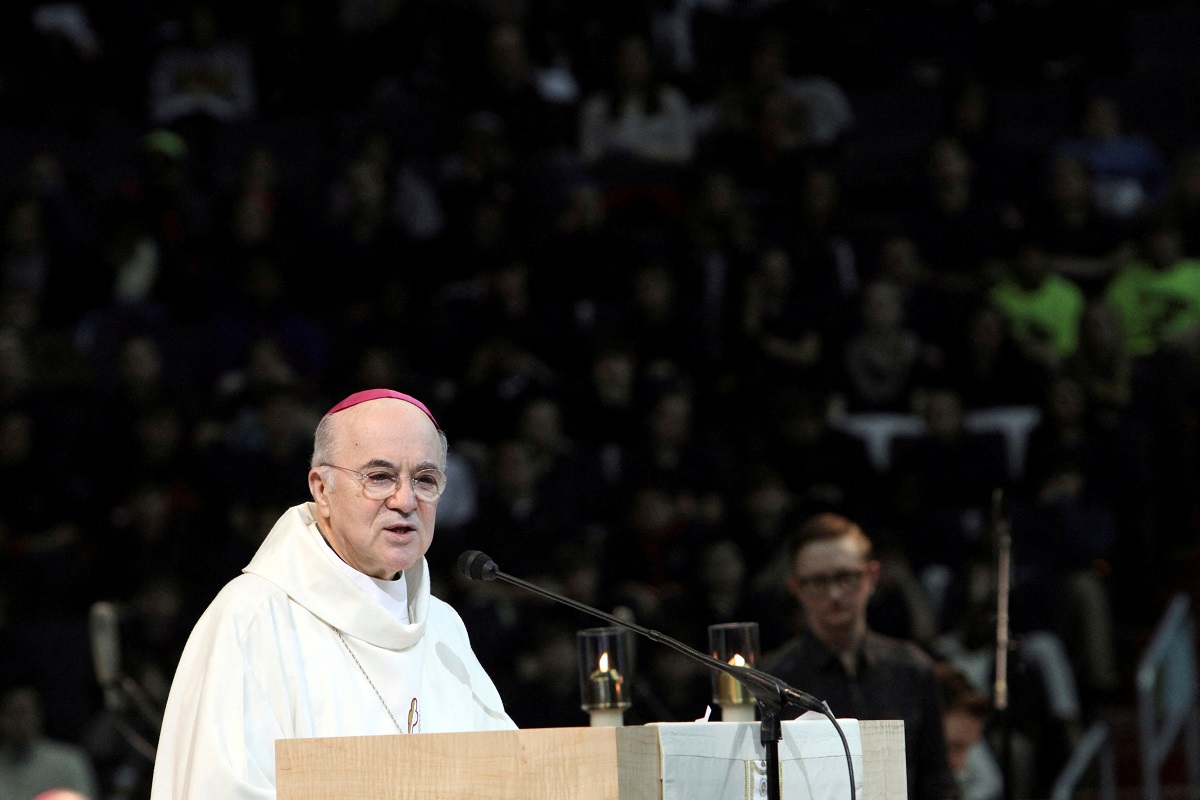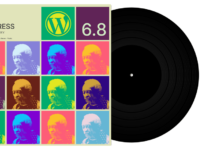Vatican Excommunicates Archbishop Viganò for Schism
Vatican City — In a historic and highly controversial move, the Vatican has excommunicated Archbishop Carlo Maria Viganò, the former Apostolic Nuncio to the United States. This significant decision, which has rapidly become the most trending search on Google today, was announced following a meeting of the Dicastery for the Doctrine of the Faith on July 4, 2024. The Archbishop was found guilty of schism, a grave accusation within the Roman Catholic Church.

The Vatican’s decision to excommunicate Archbishop Viganò, a figure known for his vocal criticism of Pope Francis and other high-ranking church officials, marks a pivotal moment in contemporary Church history. Schism, in ecclesiastical terms, refers to the formal separation from the communion of the Church, often due to disputes over doctrine or authority.
Background and Context
Archbishop Viganò has been a controversial figure for several years. He gained international attention in 2018 when he released a letter accusing Pope Francis and other Church leaders of covering up sexual abuse allegations against former Cardinal Theodore McCarrick. This letter, which called for the Pope’s resignation, ignited a firestorm of debate within the Church and beyond.
Since then, Viganò has continued to be an outspoken critic, often aligning himself with conservative factions within the Church and questioning the Pope’s stance on various theological and social issues. His actions have been viewed by some as a courageous stand for truth, while others have seen them as divisive and damaging.
The Decision to Excommunicate
The meeting of the Dicastery for the Doctrine of the Faith, the Vatican body responsible for safeguarding Church doctrine, culminated in the decision to excommunicate Viganò. This decision was not made lightly, given the severe implications of excommunication, which is the Church’s most severe form of ecclesiastical penalty. It signifies that the individual is cut off from participating in the sacraments and the communal life of the Church.
The Vatican released a statement explaining that Viganò’s persistent actions and statements had led to his excommunication. While the specifics of the charges were not detailed in the statement, it is clear that his continued opposition to the Pope and the Vatican’s teachings were central to the decision.
Reactions to the Excommunication
The excommunication of Archbishop Viganò has elicited a wide range of reactions from different quarters. Supporters of Pope Francis have applauded the move, seeing it as a necessary step to maintain unity and doctrinal integrity within the Church. They argue that Viganò’s actions have sown discord and confusion among the faithful, undermining the authority of the Pope.
On the other hand, Viganò’s supporters view the excommunication as an unjust punishment for someone who has dared to speak out against corruption and abuse within the Church. They argue that his criticisms are valid and that the Church should address the issues he has raised rather than silencing him.
Expert Opinions
Theologians and Church historians have weighed in on the significance of this event. Dr. Robert Mickens, editor-in-chief of La Croix International, stated, “This is one of the most significant excommunications in recent history. It underscores the deep divisions within the Church and the challenges that Pope Francis faces in trying to lead a global and diverse institution.”
Dr. Phyllis Zagano, a theologian at Hofstra University, remarked, “The excommunication of Viganò sends a clear message about the limits of dissent within the Church. While there is room for discussion and debate, there are boundaries that cannot be crossed without severe consequences.”
Looking Forward
The excommunication of Archbishop Viganò raises several important questions about the future of the Catholic Church. Will this decision help to heal the divisions within the Church, or will it exacerbate tensions? How will Viganò’s supporters respond, and what impact will this have on the broader Church community?
For now, it is clear that the Vatican is taking a firm stand against what it sees as schismatic behavior. This decision underscores the importance of unity and adherence to Church doctrine, even in the face of criticism and controversy.
Additional Information
For those unfamiliar with the term, excommunication is a severe penalty that the Church can impose. It is intended to be medicinal rather than punitive, aimed at bringing the individual back to repentance and reconciliation with the Church. However, it also serves as a clear statement that the individual’s actions or beliefs are in serious conflict with the teachings of the Church.
The news of Viganò’s excommunication has not only trended on Google but has also sparked extensive discussion on social media and various news platforms. Many Catholics and observers are closely watching to see how this situation unfolds and what it means for the future of the Church.
Conclusion
The excommunication of Archbishop Carlo Maria Viganò is a landmark event that highlights the complex dynamics within the Catholic Church today. As the Church navigates this turbulent period, the hope is that it can find a path forward that upholds its core values while addressing the legitimate concerns of its members.
For more detailed information about this development, you can refer to the article from Sunday Visitor News: Vatican Excommunicates Archbishop Viganò, Found Guilty of Schism.
This news story continues to develop, and further updates will likely shed more light on the implications and consequences of this significant decision. Stay tuned for more information as it becomes available.































![Samsung Developers Recommend 3 Top Good Lock Features [Exploring Good Lock ③] 3 Features Recommended by Samsung Developers and Newsroom Editors](https://www.hawkdive.com/media/samsung-mobile-good-lock-home-up-developers-and-editors-picks-wonderland-edge-lighting-and-nice-shot-218x150.gif)

